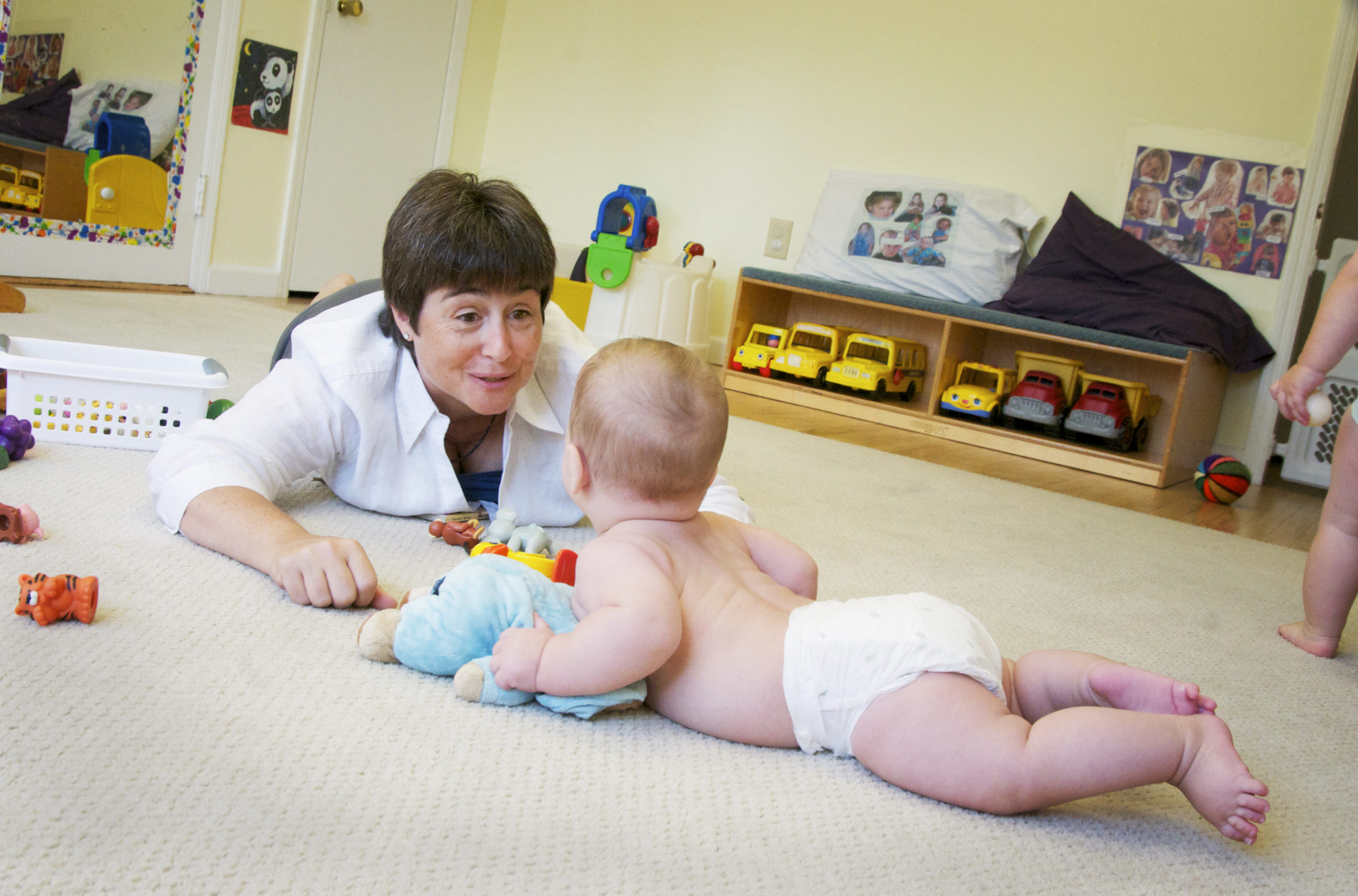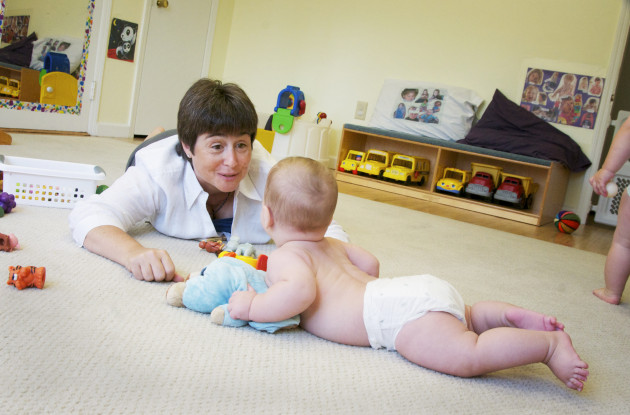
When You Can’t Afford a Diaper…

Joanne Samuel Goldblum, photographed by Gale Zucker
During this government shutdown, there are now insurmountable obstacles to accessing many of the vital human services that so many depend upon–food aid to women, infants and children (WIC), for example. The shutdown is not just a matter of government employees losing wages hour by hour (bad enough) but of the grievous plight of people–largely women, in fact–whose very food for survival is in jeopardy. And these benefits at their best are too often insufficient for the people who need them most. Here is one woman who has for 10 years taken on an often unrecognized–but enormous–expense for families today.
“Once you start noticing, the need is everywhere.” So says Joanne Samuel Goldblum, founder and president of The National Diaper Bank Network (diaperbanknetwork.org), the largest diaper bank organization in the nation. She created this innovative nonprofit in New Haven, CT, 10 years ago. This year, through the National Diaper Bank Network, she distributed more than 15 million free diapers to needy families across the country through a network of local diaper banks. According to the organization’s website, nearly 30 percent of low-income families cannot afford diapers.
Honored widely for her pioneering work, Goldblum told Lilith that her early experiences as a social worker, seeing a need that is often quite invisible, moved her to relieve the pain of babies and children who have to spend all day in a urine-soaked diaper — and the shame and depression their mothers suffer (yes, most often the mothers) when they have to put a kid to bed in a dirty diaper because they can’t afford clean ones. Or can’t go to work because they don’t have the money for the diapers you need to send to daycare. “And you are not allowed to pay for diapers on food stamps!” said Goldblum.
“With diapers, once you see the need you start to see it everywhere — towels, shampoo, soap, toilet paper. When you start to think about what happens to families when you cannot afford these things… oral hygiene problems because they don’t have toothpaste or kids going to school dirty because there is no laundry detergent….
“We are taking about diapers, but the bigger picture we are talking about is poverty, and about kids in America — and we manage to ignore this to a large degree.”
Goldblum says her mother, Ellen Samuel Luger, a social worker active in reproductive rights, is her model for activism. “It’s striking to me how many social workers are Jewish women! This fits incredibly well with what you learn as a Jew about social justice. Tikkun Olam is what the rabbi talked about” in the New Jersey Reform congregation where she grew up.
So why are “churches” and not “synagogues” mentioned on The Diaper Bank Network’s website? Although there are synagogues and temples that run diaper drives, Goldblum said, “I have had less luck getting in to speak at synagogues than at churches. It likely has more to do with the ways churches and synagogues do community outreach. We certainly get a lot of support from people affiliated with synagogues. The Diaper Bank Network has been trying really hard to find ways to connect with organizations like JCCs and early childhood programs.” Not surprisingly, Goldblum notes that the biggest category of individual supporters is “young parents — and grandparents.”
One of the seemingly simple policy changes Goldblum advocates is for social-service agencies to have a line item for diapers, which they give out frequently. “They only call them ‘incidentals’ in their budget, though they do spend money on these things. It’s important to name them, so people notice them.”



